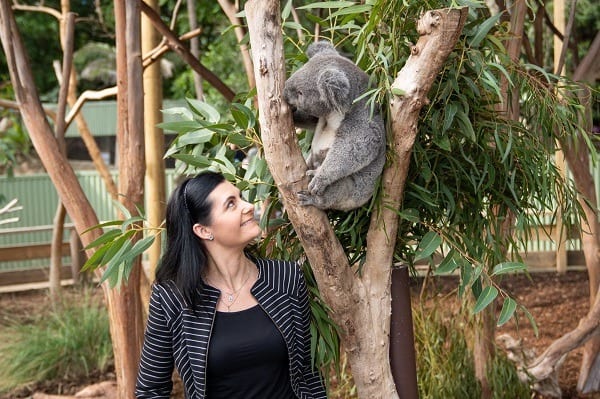On ABC’s RN Breakfast on Wednesday morning Dr Johnson said her pitch for one of the biggest science gigs in the world was quite simple.
“I said ‘Museum can save the world’ and I really believe that,” she said. “That’s certainly what has driven me. The type of science we do … is critical to understanding our natural and cultural world.”
Congratulations @DrRebeccaJ on your exciting new role at the Smithsonian Museum of Natural History in #WashingtonDC!#science #animals #koalashttps://t.co/cmycVq4O8g
— RN Breakfast (@RNBreakfast) December 17, 2019
Dr Johnson, the current chief scientist at the Australian Museum, is one of Australia’s foremost experts in koala conservation genomics. In 2018, she received world-wide recognition after leading the international team that sequenced the genome of the koala for the first time.
During her time at the Australian Museum, Dr Johnson has established the Australian Centre for Wildlife Genomics (ACWG) and played a critical leadership role in taking the Australian Museum to a new level by broadening the impact of museum science on an international scale.
Dr Johnson has also played a significant role in informing government policy, according to Kim McKay AO, Director and CEO of the Australian Museum.
McKay describes Dr Johnson as a “pioneering leader in STEM”.
“She is deservedly respected by her peers in Australia and around the world,” McKay said.
Dr Johnson became Director of the Australian Museum Research Institute in April 2015. In doing so, she became the first woman to hold the position in the Australian Museum’s 190-year history.
“It is a privilege to be selected as the Chief Scientist and Associate Director of Science at the NMNH – an institution which represents the highest levels of scientific endeavour and achievement,” Dr Johnson said regarding her new role in the US.
Among many of her recent career achievements, in 2017, she was named as the of the Australian Financial Review and Westpac’s ‘100 Women Influence’ in the Innovation category, for her ground-breaking work of the field of wildlife forensics.
In 2017, she was named one of the 30 inaugural Superstars of STEM.
As an adjunct Professor of the University of Sydney, Rebecca holds an Alumni Award for Professional Achievement.



